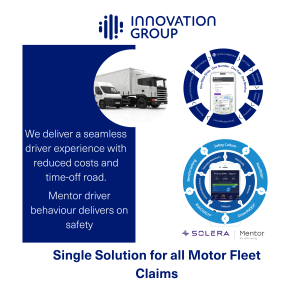Big data is data can that best be summarised by the three Vs – it’s data that contains a greater variety arriving in increasing volumes and with ever-higher velocity.
Put simply, big data is larger, more complex data sets, especially from new data sources.
These data sets are so large that traditional data processing software just can’t manage them, but for those of us in the fleet management world, this excess of data can be used to address an array of business problems that we wouldn’t have been able to tackle before.
Think for a minute about your work. We use platforms daily that automate fleet management technologies, use connected devices that monitor vehicle and driver performance, and we have tools that provide us with remarkable insight into how our fleet is performing in real-time. That’s all big data.
In recent years telematics has become our greatest big data tool, having developed from a small extension of a fleet manager’s role to an integral part of it. Simply put, organisations need to have access to this data and find tools and techniques to analyse it effectively.
Using big data properly can not only result in huge cost savings, but the safety and risk mitigation capabilities will ultimately provide safer roads for all vehicle users.
Not convinced? Here are five reasons why we all need to start using big data to our advantage:
1. Big data means better performing fleet vehicles
Fleet managers having access to fleet vehicle data means an overall better-performing fleet thanks to predictive maintenance. In addition to real-time alerts about problematic engines, low batteries and inspection reminders, managers can use data to predict when a vehicle will need maintenance and schedule accordingly.
2. Big data means enhanced fuel management
Data management allows fleet managers to monitor not only the total fuel costs for the company but how fuel is being used. For example, vehicles that spend excessive time idling will consume more fuel than is necessary.
3. Big data brings about huge cost savings
Predictive analytics and safety features mean fewer accidents. Since accidents account for a significant portion of fleet expenses, this in itself saves resources for companies in fleet management. Predictive maintenance also allows fleet managers to understand the lifetime value of parts and vehicles, which saves resources in that area as well.
4. Big data brings safer drivers
Big data also provides fleet managers with the capability to accurately understand the behaviour patterns of their drivers, and coach them accordingly. Telematics – sensors installed in fleet vehicles – provide data on how drivers typically use their vehicles. Drivers who regularly speed or accelerate aggressively are not only wasting fuel unnecessarily but are also practising unsafe behaviour.
5. Big data brings long term rewards
Fleet management companies that invest in big data will find great rewards. From a more connected fleet to high financial savings, the advantages are plentiful. Big data platforms are a somewhat significant investment, but they can make for a safer road and more efficient fleet. Be a leader and innovate!





















